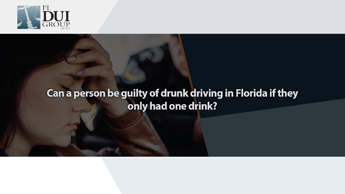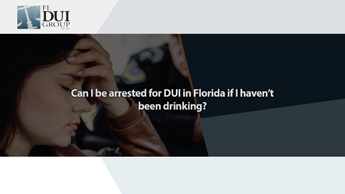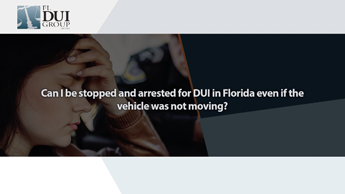Florida Breath Test Attorney
A breath test plays a central role in almost all DUI cases. While breathalyzer results may not make up all the evidence in a case, blowing more than .08 quite often seals the case for the prosecutor. At the FL DUI Group, our DUI defense team understands when the breathalyzer makes or breaks the prosecutors’s case and when it doesn’t. We also know how to investigate the circumstances surrounding a traffic stop to determine whether a breath test was conducted fairly and in accordance with the law. The police expect you to plead guilty in the face of negative DUI results. We don’t want you to make any decisions until you’ve talked to an experienced and successful Florida DUI defense attorney at FL DUI Group in Orlando.
How breath tests work… and how they go wrong
Breath tests measure the weight of alcohol in blood or breath, either in terms of grams of alcohol per 100 milliliters of blood or grams of alcohol per 210 liters of breath. A breathalyzer works by using infrared spectrometry to detect whether alcohol (ethanol) is present by measuring the amount of light absorbed by molecules in the breath at specific wavelengths.
In Florida and all 50 states, a reading of .08% blood alcohol content, or BAC, is enough to arrest a person for driving under the influence.
Under Florida law, by acquiring a driver’s license and driving on Florida roads, you’ve given your “implied consent” to submit to a breath test when required by law enforcement. This does not mean police have free reign to make you take a test, though. The police still need reasonable cause to believe you are driving under the influence, such as observing one or more “indicators of impairment” prior to or during a traffic stop. The test must be incidental to an otherwise lawful arrest, and the testing must be performed substantially according to approved methods.
The officer administering the test is supposed to observe you for a period of time prior to testing to ensure the integrity of the results. The officer is also supposed to obtain two breath samples and compare the results to make sure they are consistent with one another within the degree required. Further, the officer should advise you of your right to provide a blood or urine sample as well in order to preserve evidence you may use in your defense, since breath evidence is not preserved. Failure to conform to proper procedures may be grounds for getting a case dismissed or at least challenging the results and questioning their validity. By choosing to have a knowledgeable and aggressive DUI defense lawyer represent you, any errors in test administration will be uncovered and brought to the attention of the prosecutor, judge and jury.
Breathalyzer operator and inspector error
A breathalyzer is a precision machine that has to be calibrated or tuned to a specific concentration of alcohol. In order to trust in its accuracy, the breathalyzer should be regularly checked and recalibrated as needed. In Florida, the Alcohol Testing Program of the Department of Law Enforcement is responsible for the operation, inspection, and registration of breath test instruments, as well as the regulation of those who operate, inspect and instruct others on how to conduct breath tests. This office issues permits for operators, inspectors, instructors and instruments, and develops curricula for breath test operation and inspection. Part of your DUI defense may involve a thorough investigation into the training and performance of those responsible for operating, calibrating and maintaining the breathalyzer that was used in your case.
Machine error – When the breathalyzer gives a higher reading than it should
A breathalyzer can be working but still give the wrong result. For instance, Florida law requires that a breath test be given within a “reasonable time” after you are pulled over. You might think the longer the wait, the better off you are as any alcohol in your bloodstream gets metabolized, but this delay can actually work against you. Your BAC actually rises for a period of time after drinking as alcohol gets absorbed into the bloodstream. In other words, a BAC result taken 45 minutes after you were stopped may be higher than your BAC actually was when you were driving. Law enforcement tries to account for this by extrapolating backward with complicated formulas, but the validity of their methods is questionable.
Despite what you may have heard, you can’t fool a breathalyzer machine if you’ve been drinking by popping a breath mint, sucking on a penny or trying other tricks. A breathalyzer can, however, be fooled into giving a higher reading than your actual BAC through means you cannot control. For instance, if you’ve been fasting or extreme dieting, your body may create ketones and acetones that can give off an odor similar to when a person has been drinking and can even be misread as ethyl alcohol by the breathalyzer. Diabetes can create the same result, and a diabetic or hypoglycemic attack can have the added effect of rendering a person confused or disoriented, with slow reflexes or slurred speech. These conditions can therefore fool police into thinking you’ve been drinking and then trick the machine as well.
Mouth alcohol is another way a functioning breathalyzer may give a false reading. Although the breathalyzer is supposed to be measuring air from the lungs, there is no way to avoid the fact that air from the lungs mixes with air in the mouth before it reaches the machine. If you’ve just used mouthwash or breath spray before taking a breathalyzer test, you could register a BAC higher than your actual blood alcohol content. The same effect could result from using mouth pain medicines, asthma inhalers and certain other medications.
Do you have to take a breath test in Florida?
If the police are requiring you to submit to a breath test, you are legally obligated to comply. A test refusal will result in the automatic suspension of your driver’s license for one year or for 18 months if you have previously had your license suspended for refusing a test. Also, the fact that you refused a test can be used as evidence against you in a DUI trial. Of course, the police must have probable cause to believe you are impaired before they can make you take a test. If you believe you were wrongfully made to take a breath test, your lawyer can investigate after the fact and have any illegally obtained evidence suppressed and maybe have the case dismissed.
Keep in mind that the requirement to take a breath test when ordered applies only to a chemical test such as a breathalyzer and not to field sobriety tests such as standing on one leg and counting “one thousand one, one thousand two, one thousand three” etc. for 30 seconds. Tests like these can be lawfully refused without a suspension of your license.
Call FL DUI Group for Smart, Strong Successful DUI Defense
Even if you don’t know your rights, we do. Call the Florida breath test attorneys at FL DUI Group after a DUI arrest in Orlando or central Florida. We’ll determine your options and fight vigorously for the best result in your Florida DUI case.








